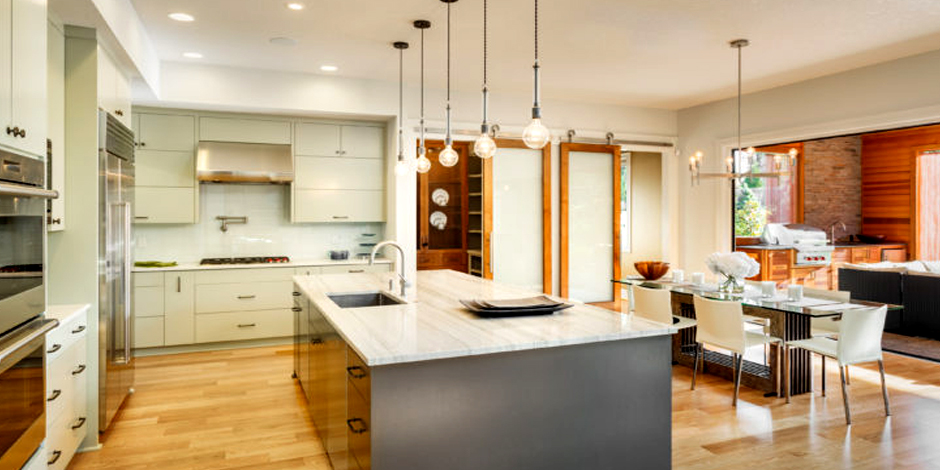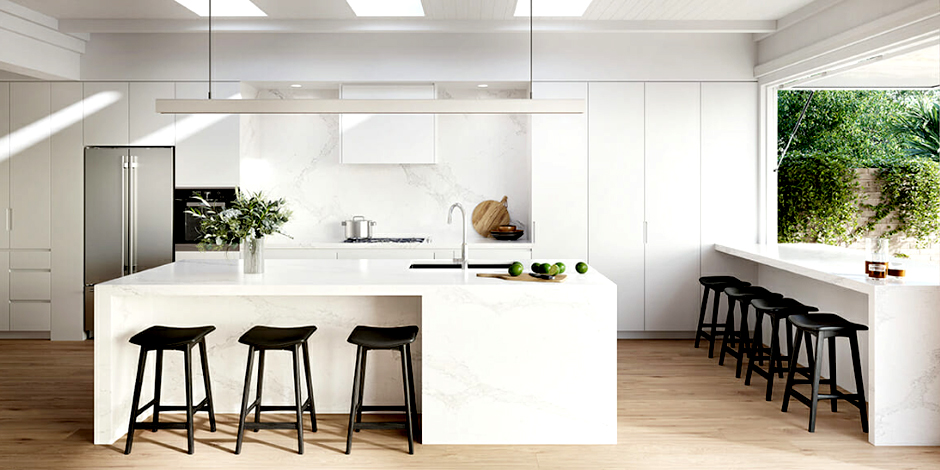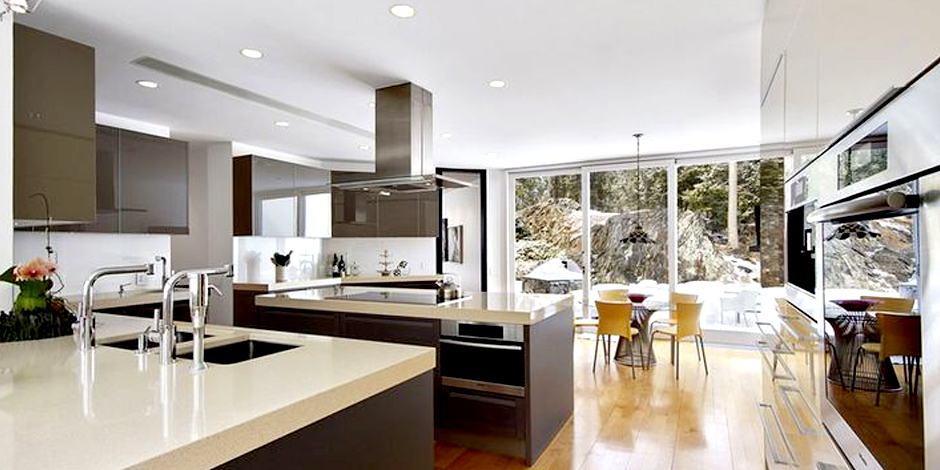Types, Advantages, Disadvantages, Maintenance Tips and Prices of Quartz Countertops for Kitchens :
The kitchen is undoubtedly the heart and soul of any home, where functionality and aesthetics must seamlessly blend together. A well-designed kitchen requires attention to detail in every aspect, including the countertop, which plays a vital role in determining the level of maintenance and cleaning required. While a variety of materials are available for quartz countertops for kitchens, quartz has emerged as a popular choice among homeowners. This comprehensive guide provides you with all the necessary information, including the pros, cons, maintenance tips, and costs associated with quartz kitchen countertops. Our aim is to help you make an informed decision on whether quartz countertops are the right choice for your kitchen needs.
What Is Quartz Stone?
Quartz stone is a type of engineered stone that is made up of crushed quartz mineral blended with a polymer resin. It is a durable material that is used in various applications, such as countertops, flooring, wall cladding, and more. The manufacturing process allows for the addition of pigments, resulting in a wide range of colors and patterns. Because of its unique properties, quartz stone is becoming increasingly popular in both residential and commercial settings.

What are the different types of quartz kitchen countertops available?
The price and classification of a quartz countertop is determined by its thickness. Typically, quartz kitchen tops come in two thickness options – 15 mm and 20 mm. However, some brands such as Caesarstone offer slabs that are 13 mm thick. While thinner slabs can be less expensive and provide a modern look, thicker slabs tend to be more durable.
Pros and Cons of Quartz Countertops
Quartz kitchen countertops have gained popularity in recent years due to their durability, versatility, and aesthetic appeal. However, as with any material, there are both pros and cons to using quartz for your kitchen countertop.

Pros:
- Durability: Quartz is a tough material that can withstand high impact and resist scratches, stains, and heat. This makes it a durable option for a high-traffic area like the kitchen.
- Low Maintenance: Quartz is non-porous, which means it does not absorb liquids, making it resistant to stains and bacteria growth. This also means it requires minimal maintenance and cleaning is easy.
- Versatility: Quartz countertops come in a wide range of colours, patterns, and textures. With so many options available, it is easy to find one that suits your kitchen style and design.
- Resale Value: Installing quartz countertops in your kitchen can increase the value of your home, as it is a popular and sought-after material.
Cons:
- Price: Quartz countertops can be more expensive than other countertop materials, such as laminate or tile.
- Not Completely Heat Resistant: Although quartz is heat-resistant, it is not completely immune to damage from high heat, and exposure to extremely hot pots and pans can cause damage or discolouration.
- Vulnerability to Chemicals: Harsh chemicals, such as bleach, can damage the surface of quartz, so it is important to avoid using these products on your countertops.
Considering both the pros and cons, quartz countertops can be an excellent choice for your kitchen if you are looking for durability, low maintenance, versatility, and aesthetic appeal. However, it is important to weigh the costs and limitations before making a final decision.






 Content Writing
Content Writing Video Marketing
Video Marketing Graphic Design
Graphic Design Lead Magnet Creation
Lead Magnet Creation Content Marketing
Content Marketing